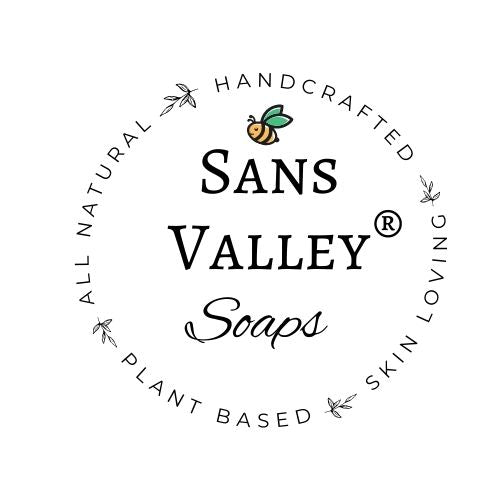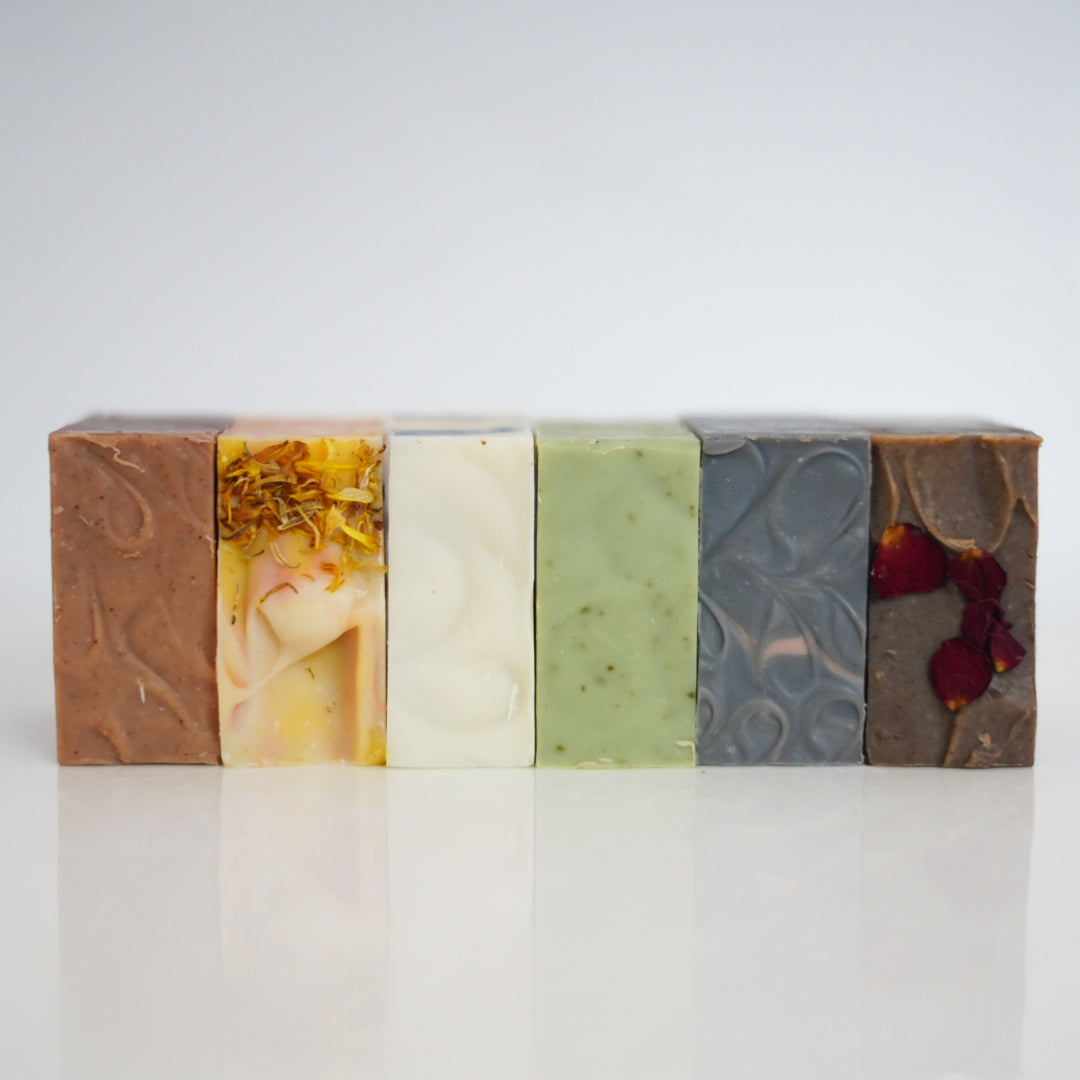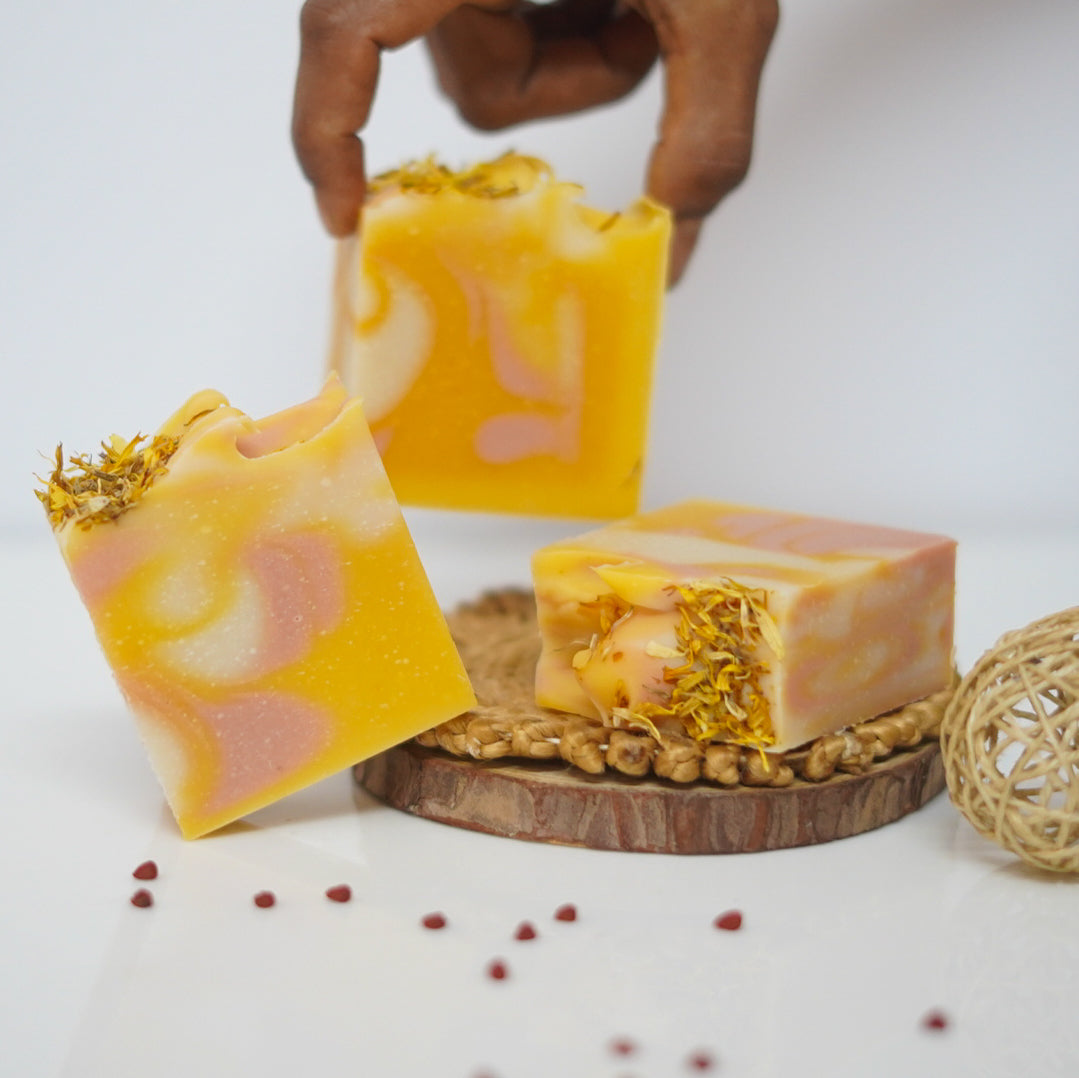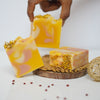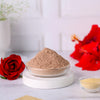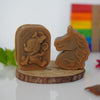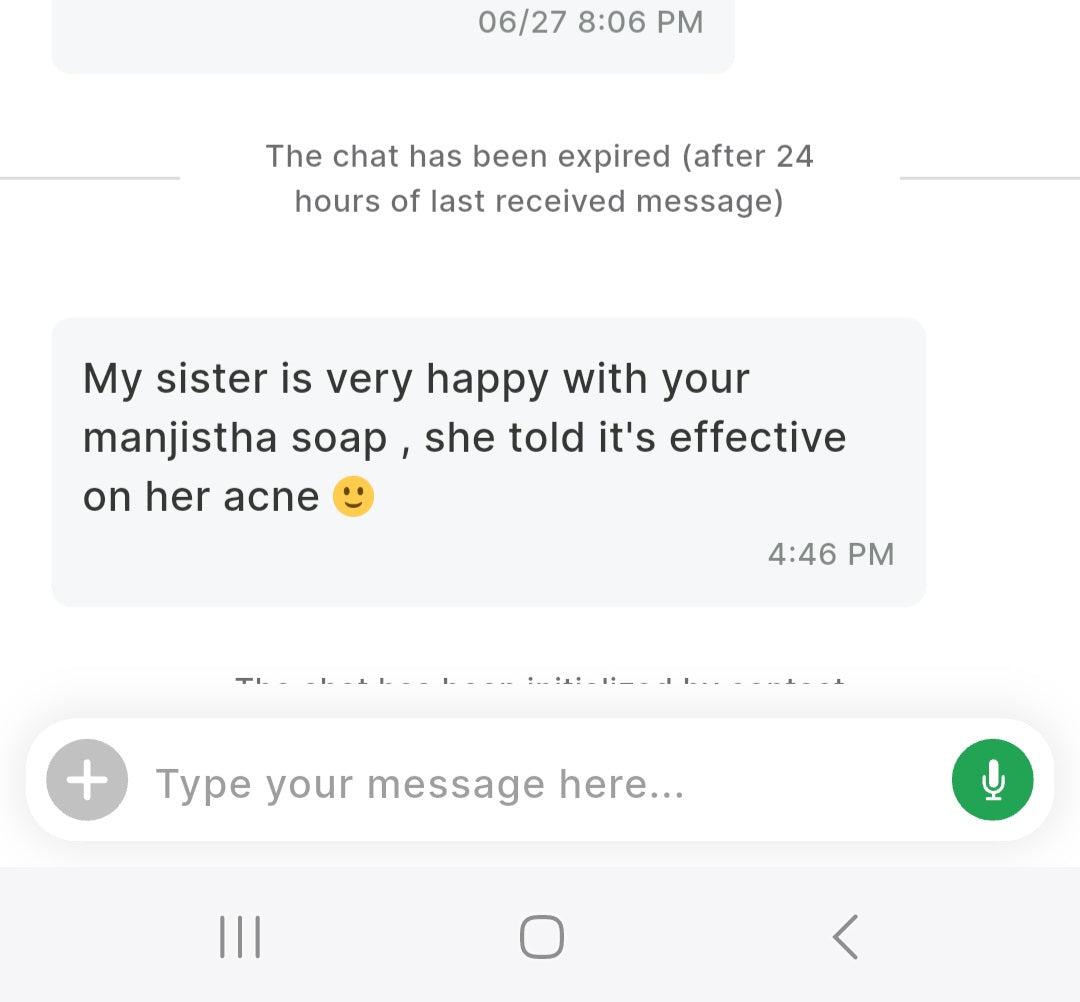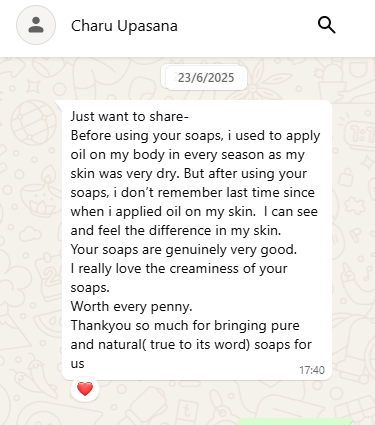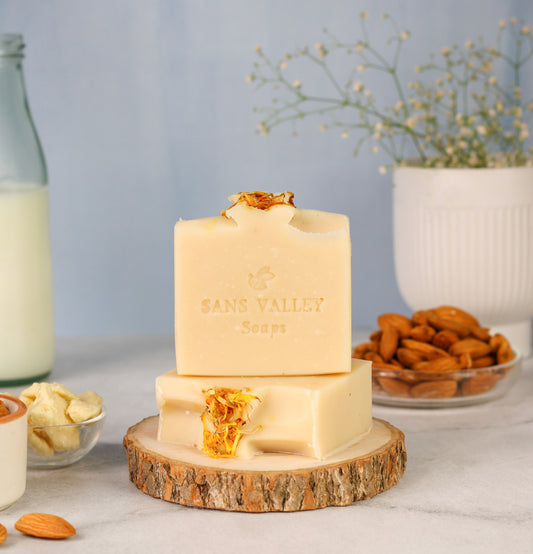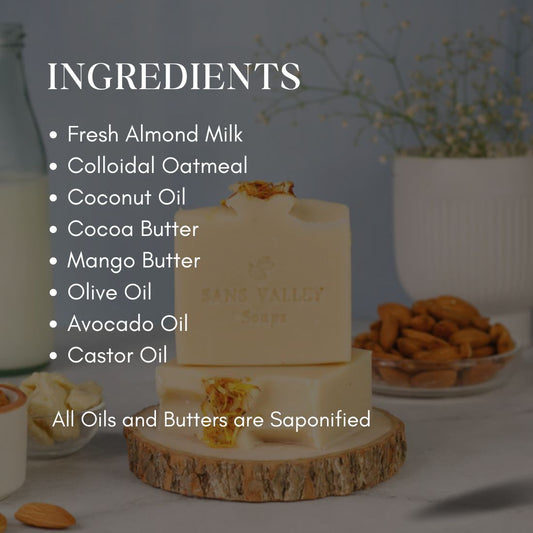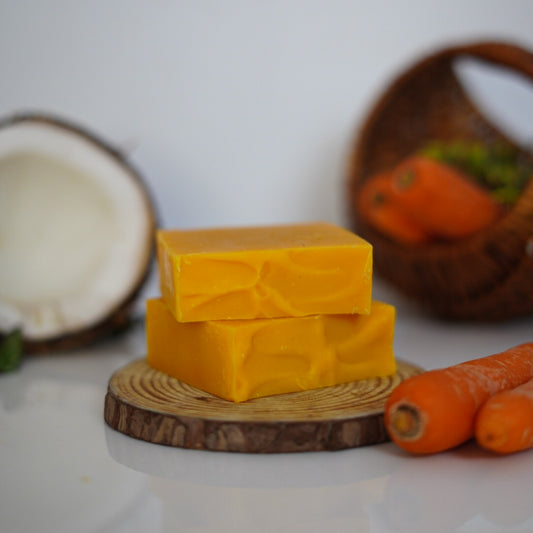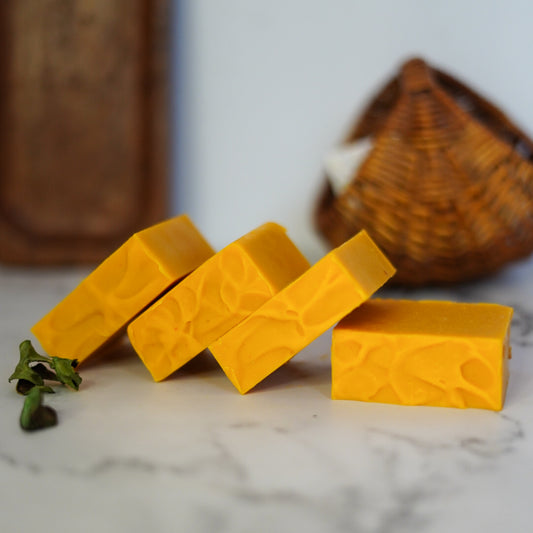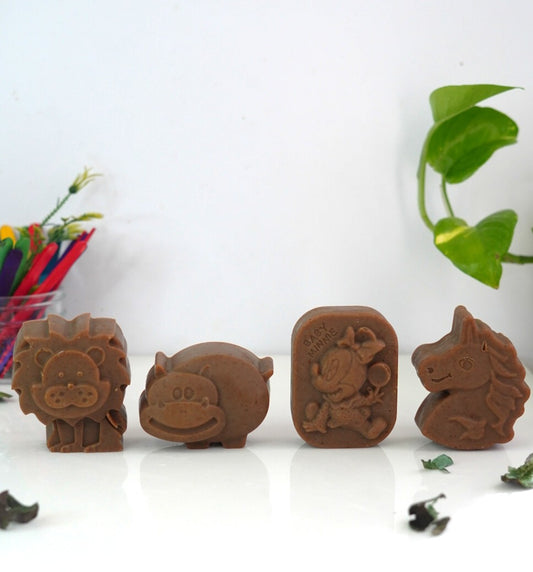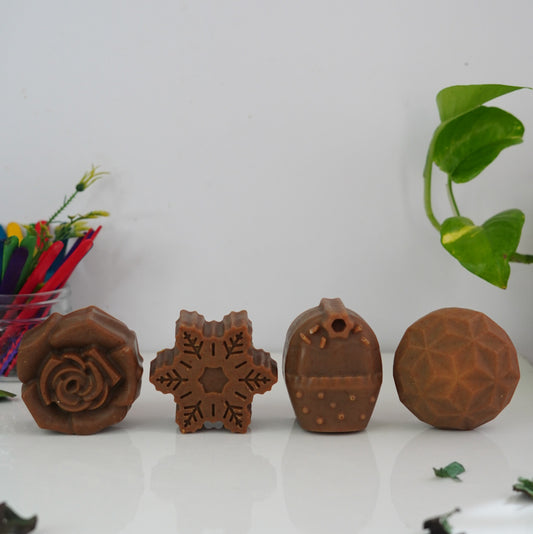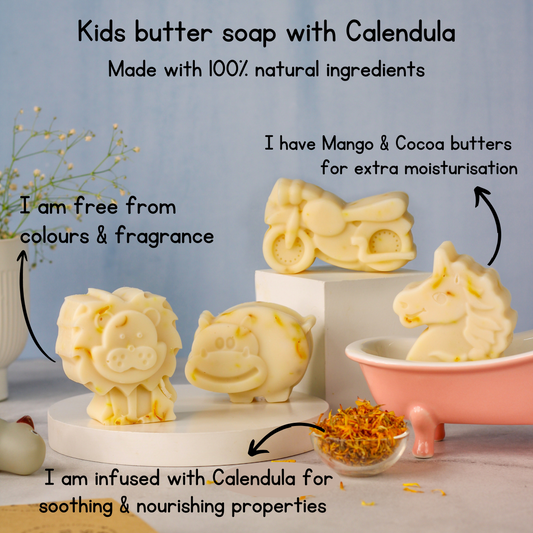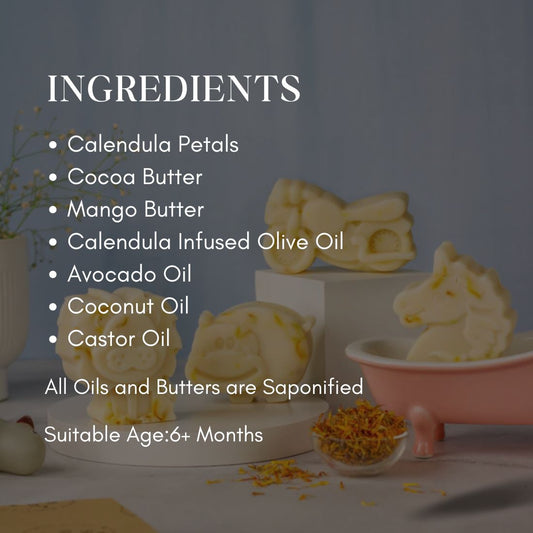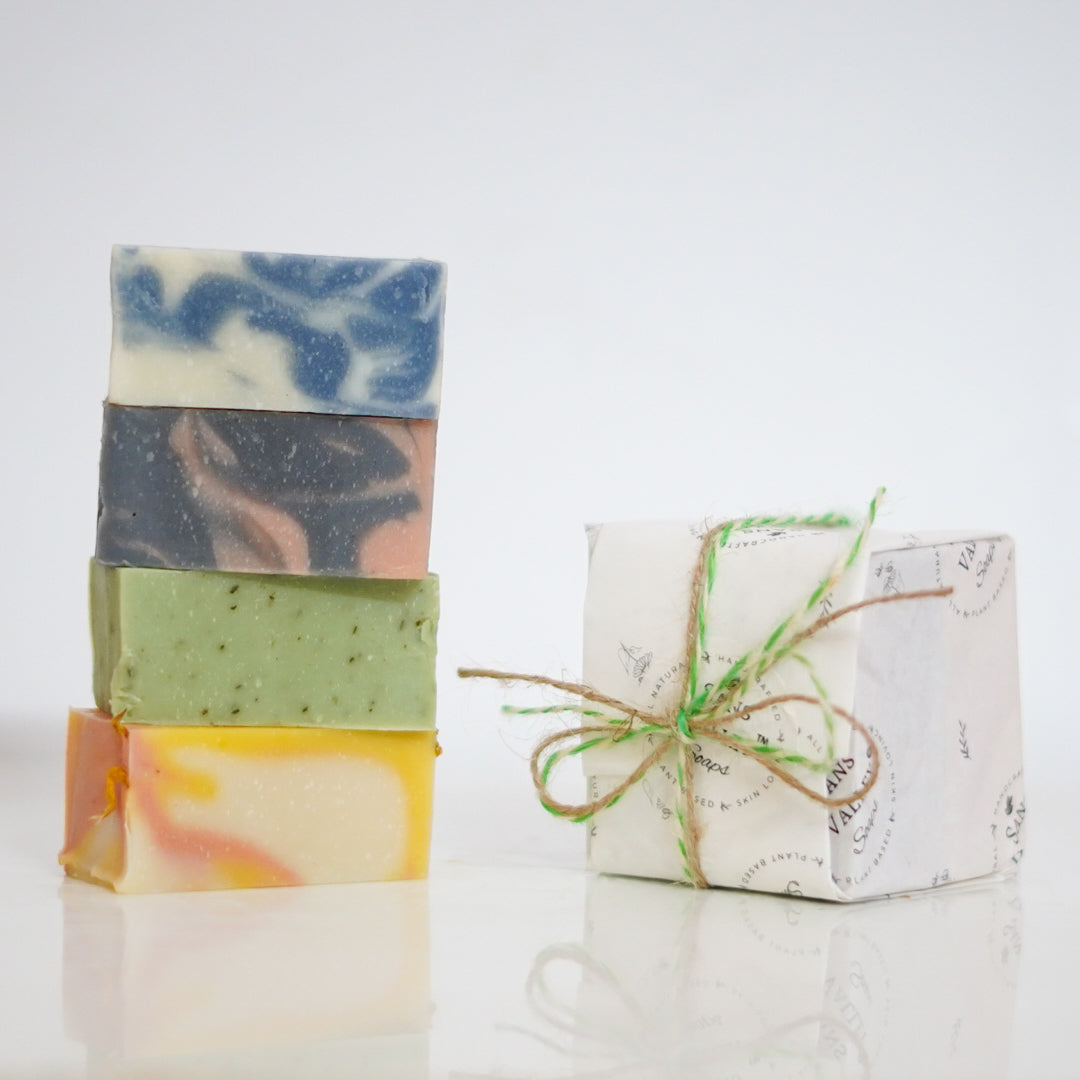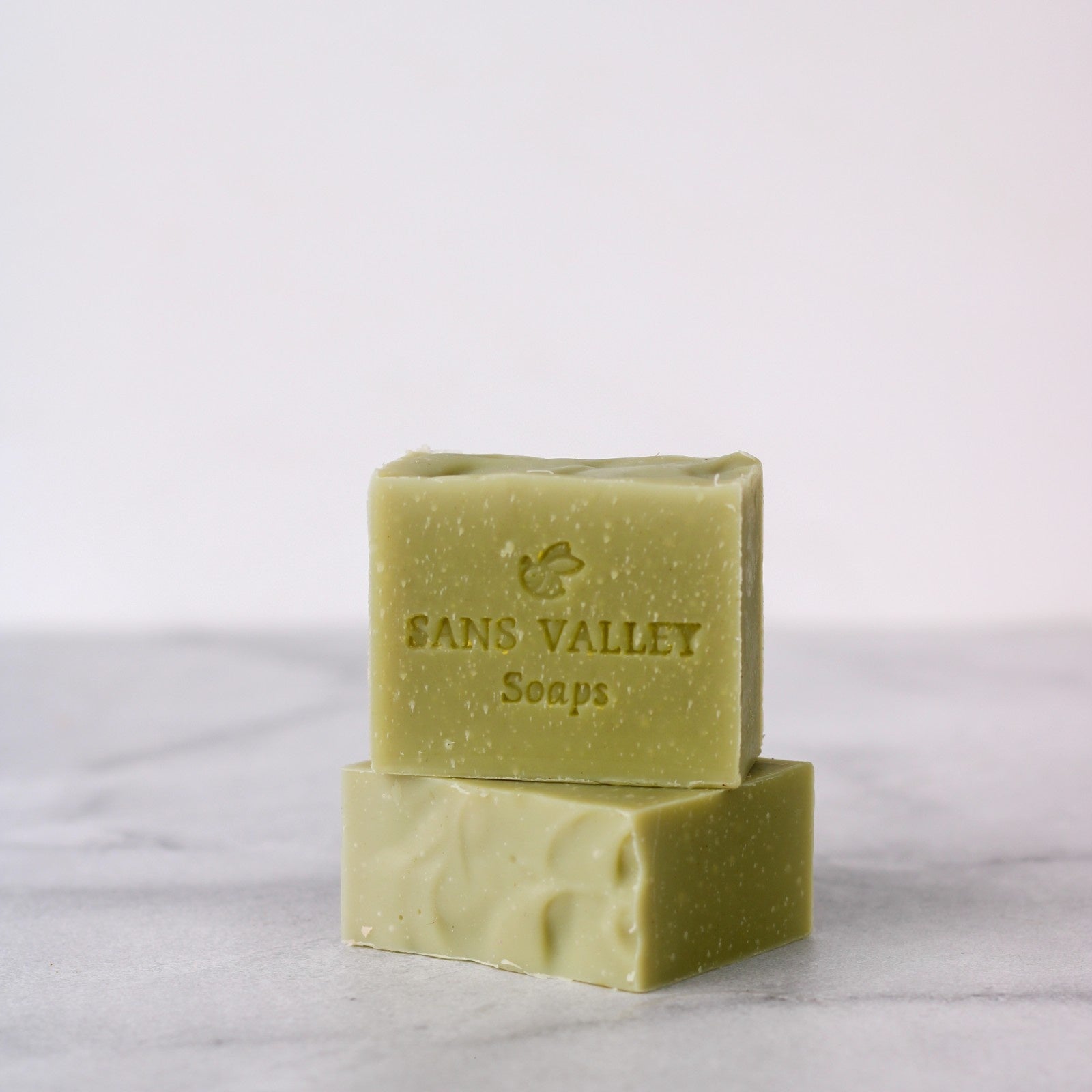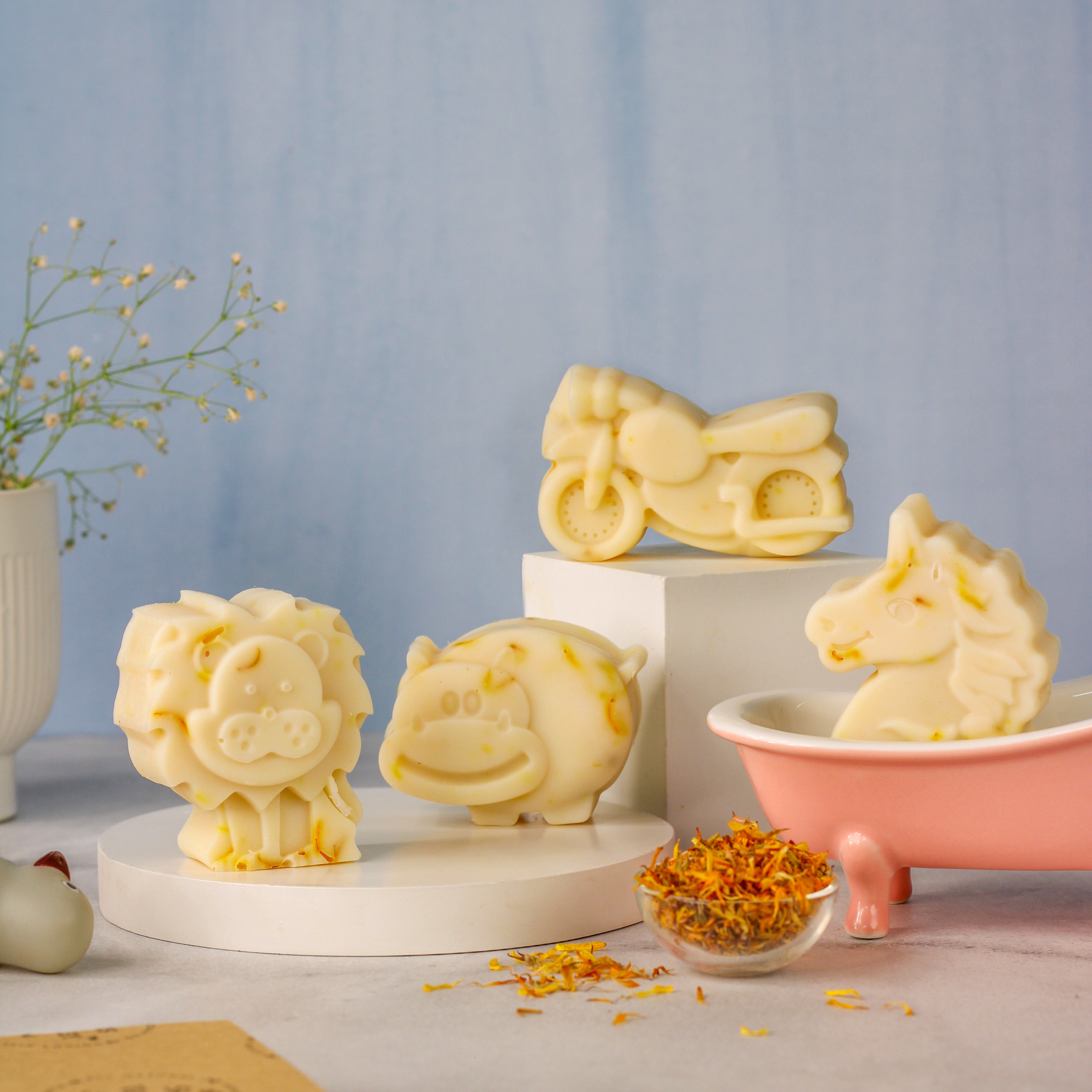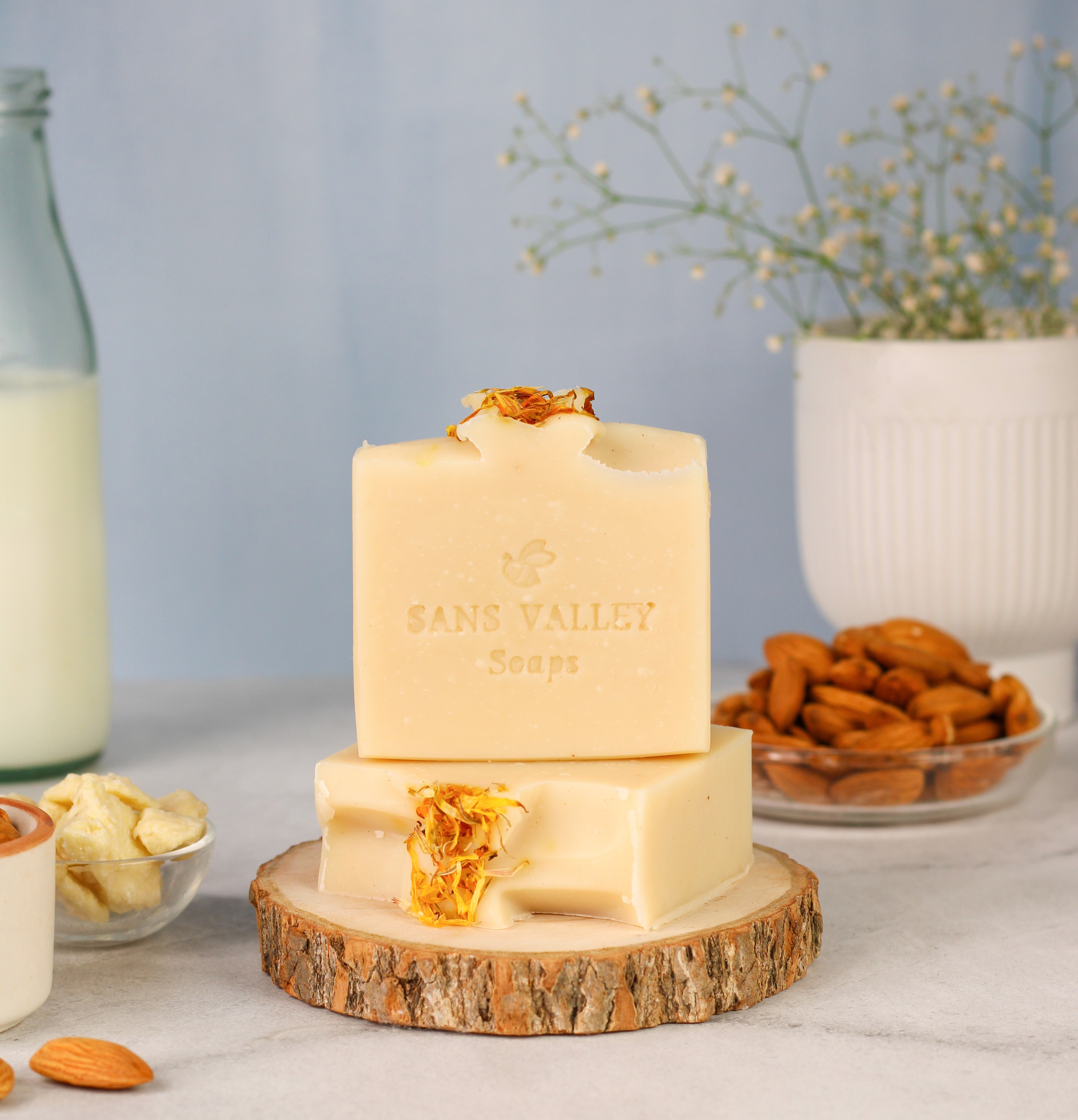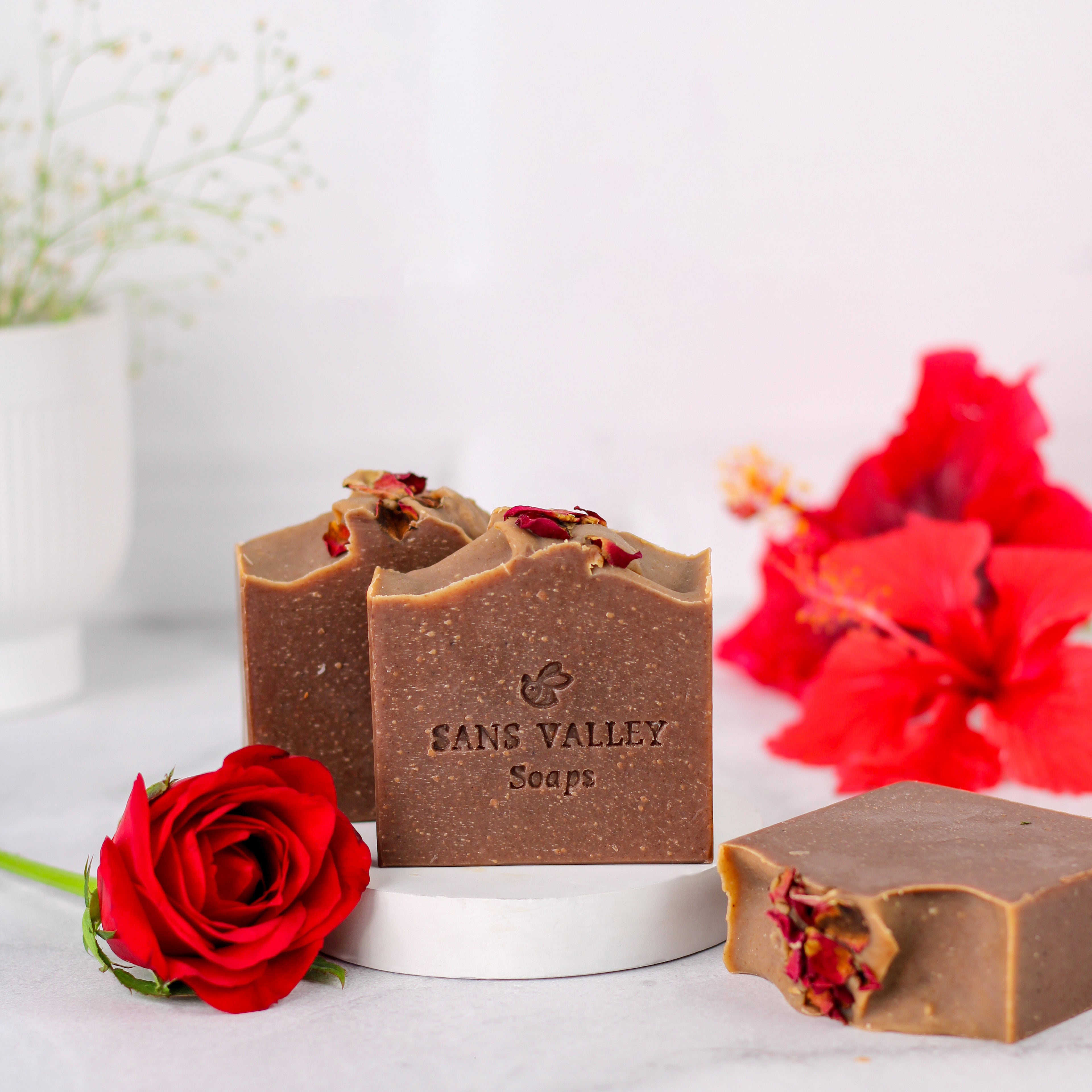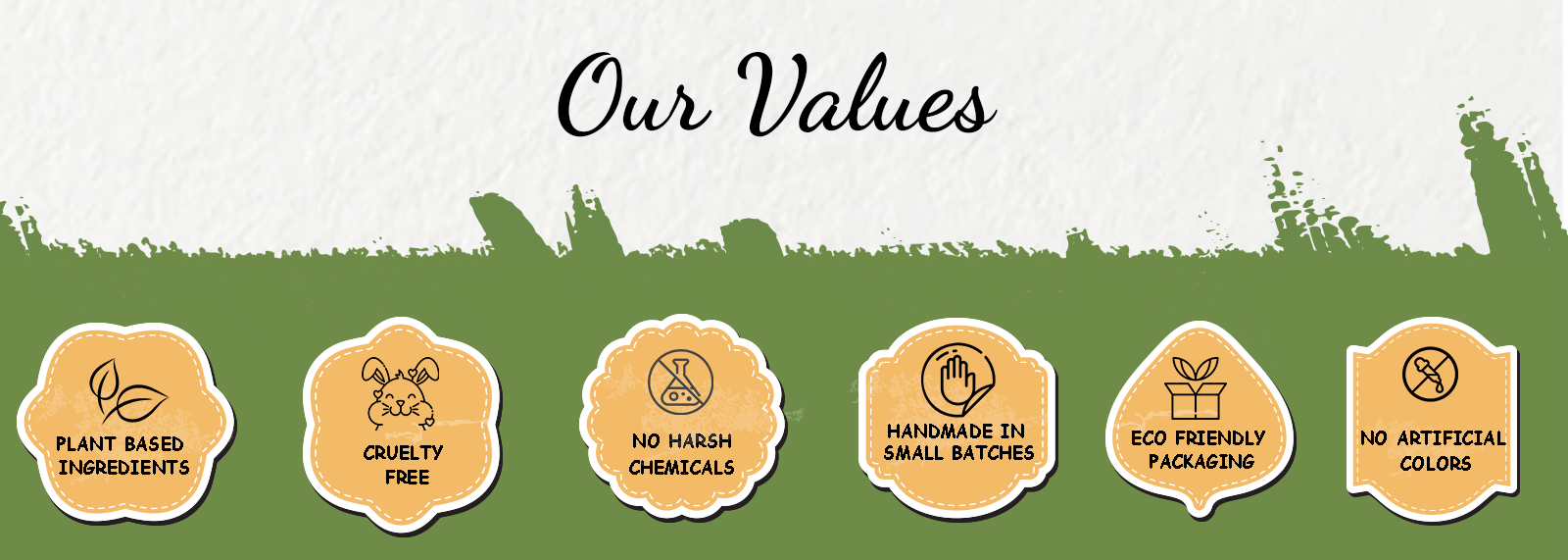NATURE AND LUXURY, PERFECTLY COMBINED
Lets hear from our customers
Best Sellers
Frequently Asked Questions
Skin whitening has become an obsession nowadays. What is going wrong? What makes our skin colour?
Our skin colour depends on melanin, Tyrosinase hormone in our body and its the colour we carry from our parents/ancestors. Its different and unique for everyone.
Every skin color is beautiful. There is a false perception that lighter skin tone is beautiful due to media impact. Let's normalize being beautiful in our skin color.
Sometimes skin colour changes due to internal body conditions also.
Soap may help in skin brightening, but we don't assure color change in our soaps as colour depends on melanin inside body. We don't do false marketing for whitening as other people do.
We want to add real value to your skin.
Our soaps are 100% natural, free of harsh chemicals, mainly for healthy skin, definitely reduces dryness and keeps skin soft.
Natural soaps are never "tear-free" They are slightly alkaline, which irritates eyes, so when advertisers refer to "tear-free" or "pH balanced" soaps, they're actually describing detergents and synthetic chemicals used to bring down the pH level to match the skin's acid mantle. So while these synthetic detergents can match the pH of your skin, they can cause other issues like: allergic reactions, strip skin of its natural fatty acids, and even harm skin's capacity to regulate its own pH levels. But natural soap, with a mildly alkaline pH, can be extremely gentle and healthy for the skin, so please take care to keep eyes closed.
The Chemistry of Soap
To create the best quality bar of soap, we use the cold process method. Passed down through generations, this method creates gentle soaps with vegetable oils/butters (and lye) that cure over 4 weeks and produce a long-lasting bar with ultimate moisturization.
The chemical reaction of making soap, called saponification, is complete, so the lye and oil molecules have combined and transformed into soap and glycerin. The lye (sodium hydroxide) is used up in the saponification process to turn oil into soap. While all real soap must be made with lye, no lye remains in our finished soaps after saponification. Many people think that there are lye alternatives to making soap like glycerin soap and melt-and-pour soap, but in fact these types were created from lye as well, since glycerin is a natural by product of saponification.
So that's why, at Sans Valley, our aim is to produce beautifully crafted, gentle and moisturizing soaps using high quality natural ingredients, and wherever possible, locally sourced ingredients.
On an average, a 100g soap lasts 20 baths approximately. However it varies based on usage
Store your handmade soap in a cool, dry place between uses, away from direct water contact, to maintain its quality and longevity.


